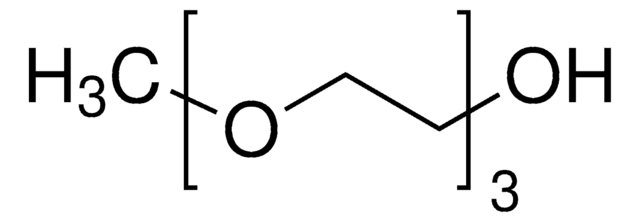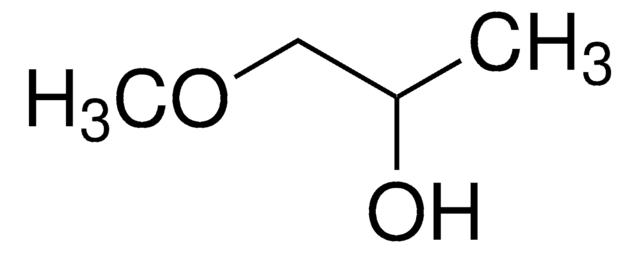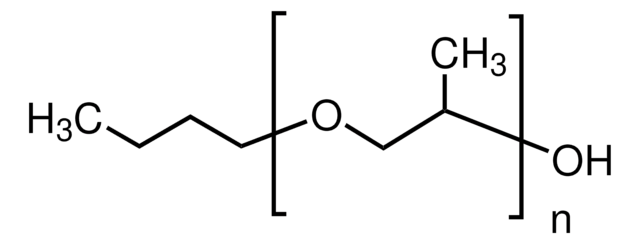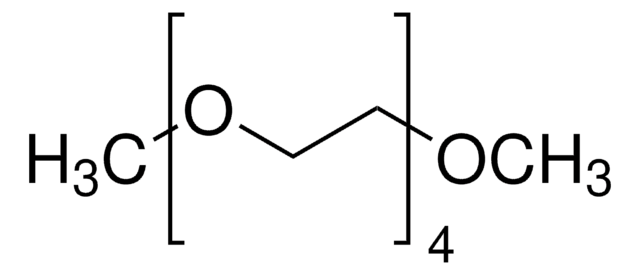484245
Tri(propylene glycol) methyl ether, mixture of isomers
≥97.5%
Synonym(s):
m-PEG3-alcohol, Methoxytriglycol, Methyltrioxitol, Tripropylene glycol monomethyl ether, Tripropyleneglycol methyl ether, [2-(2-Methoxymethylethoxy)methylethoxy]propanol
About This Item
Recommended Products
Quality Level
Assay
≥97.5%
refractive index
n20/D 1.43 (lit.)
bp
100 °C/2 mmHg (lit.)
density
0.963 g/mL at 25 °C
InChI
1S/C10H22O4/c1-8(5-11)14-10(3)7-13-9(2)6-12-4/h8-11H,5-7H2,1-4H3
InChI key
GVZNXUAPPLHUOM-UHFFFAOYSA-N
Looking for similar products? Visit Product Comparison Guide
Application
- As a solvent in resins, coatings, dyes for textiles, leather, and cosmetics.
- As a fuel additive for minimizing the particulate matter emission.
- To prepare water-mimicking non-aqueous ionic liquids for enzyme compatibility in the trans-esterification process.
Storage Class Code
10 - Combustible liquids
WGK
WGK 1
Flash Point(F)
235.4 °F - closed cup
Flash Point(C)
113 °C - closed cup
Personal Protective Equipment
Certificates of Analysis (COA)
Search for Certificates of Analysis (COA) by entering the products Lot/Batch Number. Lot and Batch Numbers can be found on a product’s label following the words ‘Lot’ or ‘Batch’.
Already Own This Product?
Find documentation for the products that you have recently purchased in the Document Library.
Our team of scientists has experience in all areas of research including Life Science, Material Science, Chemical Synthesis, Chromatography, Analytical and many others.
Contact Technical Service








